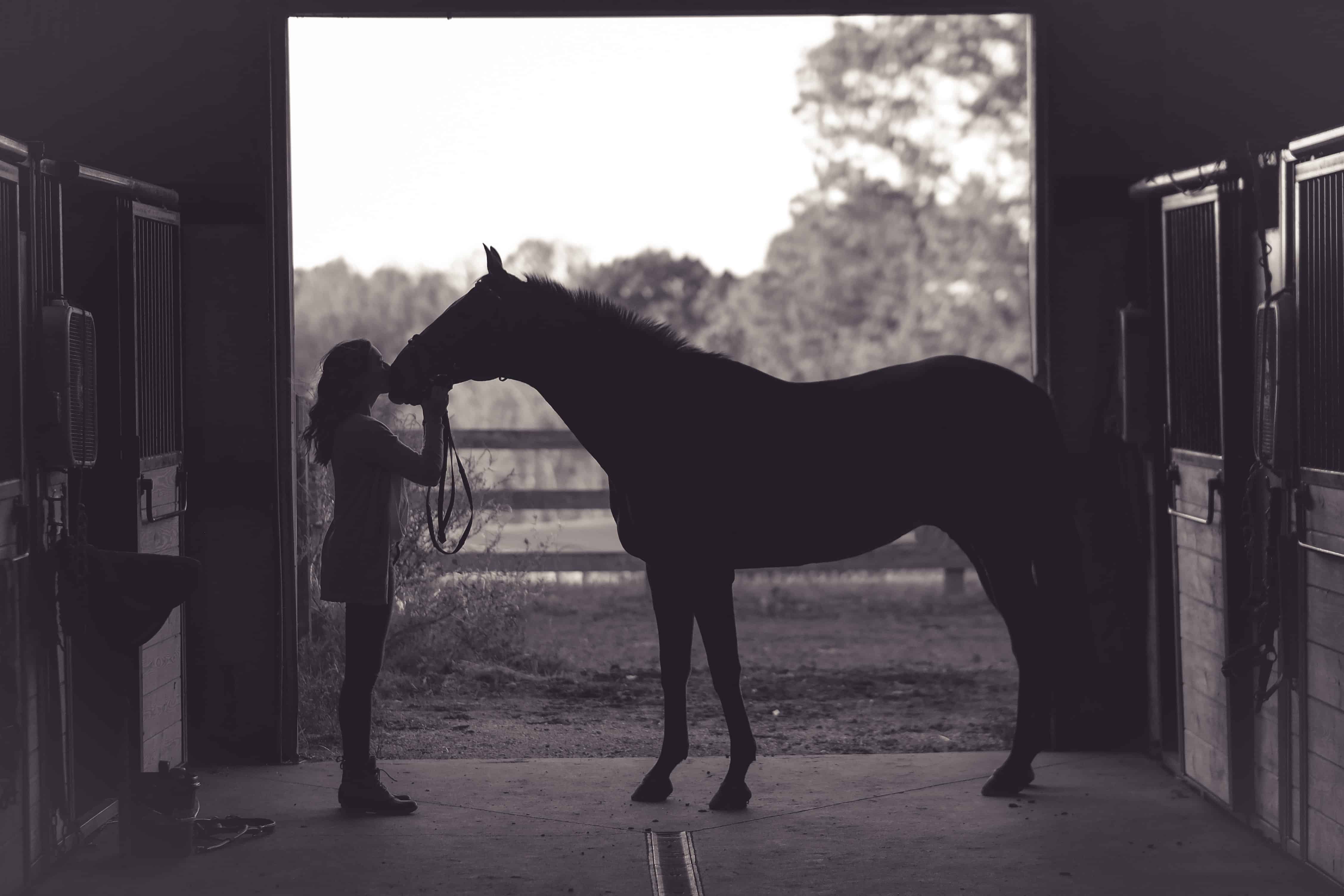If you’ve attended therapy sessions before—be it to repair a relationship, help deal with an addiction, or get clarity on your career—it likely took place in an office tower or hospital. But have you ever thought about receiving counselling on a farm? What would that look like?
Jennifer Schramm has been doing life coaching and counselling for over a decade, and in 2018, she made the move from her office at Yonge and St. Clair to a 70-acre farm on the outskirts of King City. For both Schramm and her clients, the move has been transformational.
Schramm now runs her counselling services from inside a barn. Some of her clients sign up for equine therapy (therapy with horses), while others simply love the change of scenery. Many have shared that the short drive from Toronto (35 minutes from midtown) often helps them to unwind, or get some clarity, before sitting down to address tough issues. The distance to arrive is part of the experience.
“It gets you out of the hustle and bustle of the city—takes you out of that space,” says Schramm. “It helps ground us, centre us and gives us that feeling that we can breathe.” After living in quarantine for several months, it’s a feeling that Torontonians are craving more than ever right now—at ease, in nature, with space to move freely.
With air circulating through the big old barn doors, Schramm’s office is airy, and feels like it’s outdoors. For those nervous about the virus, entering the barn is far more relaxed than having to ride up the elevator to get to an appointment. Schramm also welcomes her clients to wear masks, if that helps them to feel more comfortable.
If you are curious about subverting the traditional talk-therapy experience by working with horses, equine therapy may be for you. “With a therapist it’s more of a talking experience, but with a horse it’s more of a felt experience,” says Schramm, who has had a deep love and respect for horses since she was a small child.
For those wondering how this all looks (we definitely were), Schramm explains, “For the first session, we meet in my office [in the barn], for ten minutes or so to go over horse behaviour; you don’t have to have any experience with horses, or any riding experience, as it’s all ground work. We will keep you safe.”
Schramm then takes you out into the field, where you set an intention and then spend time with the horses. Time with the horses may be spent together in the round pen, moving the horse with your energy, leading, grooming, or doing other exercises with the horse. Following, clients return to the barn office for a debrief. It’s typically a 4x commitment.
So what is it about horses that makes them so therapeutic? “Dogs and cats are used for lots of therapy, but horses are different. Horses are prey animals, so their mission in life is to stay safe and not get eaten. Their internal guidance system is designed to heed threats from their environment. A dog will come up to you and be like ‘hi-hi-hi!’ but a horse won’t. They will continue to do what they are doing and read your energy. Seeing how a horse responds to you will help you identify certain behaviours in yourself that you may not notice.”
In typical therapy, there’s usually an hour allotted to talking, but as Schramm reminds us, 93% of communication is non-verbal. Therapy with horses allows people to really feel things in their body and connect with their intuition. “There’s something about being around a 1200 pound animal that forces us to be in our body and become more aware.”
Schramm shares that people often leave the sessions having a new sense of bodily awareness when it comes to how they communicate, “You can watch the behaviour be played out in the horse, and then you can try new behaviour, and test it out in your own life.”
We are big believers in the power of finding serenity in nature. The idea of getting professional therapy in an outdoor setting is a very appealing alternative to what we’re used to, or as Schramm puts it, “Coming to the farm gives you more space to connect with yourself in a different way than you would in the city.”
To find out more, or book an appointment, head to Jennifer Schramm’s website.



 Follow Us On Instagram
Follow Us On Instagram
